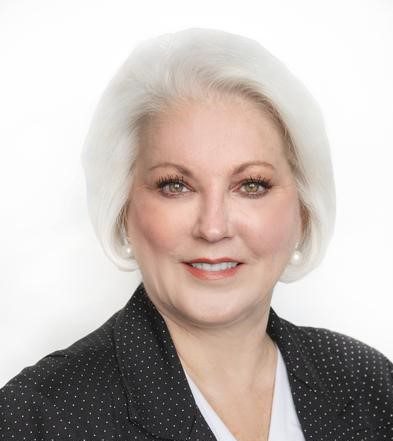TAKE HOME MESSAGE:
Feeling empowered is a key part of living a full and healthy life and a way to advocate for the best things to lead a meaningful existence. Couple that self-empowerment with practical, real-world strategies to advocate for a salary that compensates you for your true worth.
INTRODUCTION:
Experts today often discuss the importance of being empowered and feeling that way can be a key part of living a full and healthy life. But, take a second look at that phrase—being empowered—and you’ll see that it refers to a passive process, one of other people empowering you. Instead, you should empower yourself by understanding what you’re truly worth, embracing a philosophy of lifelong learning, and then using that combination to earn more money in the workplace.
CONNECTION BETWEEN EMPOWERMENT AND PRODUCTIVITY:
The connection between empowerment and productivity goes beyond being a commonsense conclusion. A study titled “Relationship Between Psychological Empowerment and Productivity of Medical Librarians” that appears on the National Library of Medicine’s National Center for Biotechnical Information shares how empowerment has a “remarkable effect” on productivity.” Moreover, the Journal of Veterinary Medical Education notes how “Self-confidence is important for well-being and for bringing value to future employers.”
Entire college courses can be designed around becoming more self-powered with the AMVA journal article, “Empowering Learner Self-Efficacy in Student-Focused Veterinary Education,” sharing a key strategy that professors can use. Take a clinical skill needed by veterinary professionals and break it down into individual components of skill development. This breakdown allows students to assess their own individual competencies as they less passively rely upon third-party critiques. A survey of second year DVM students showed a significantly increased ability to reflect upon their own works’ quality, showing an increase in the number of students who felt they could accurately judge their own skill performance quality from 31.7 percent to 94.6 percent. The authors of this paper suggest that people in the veterinary profession can collaborate with mentors, post-education, to further develop a sense of self-empowerment in this fashion even if they weren’t taught this skill in their educational years.
REALISTIC ASSESSMENT OF SALARY POTENTIAL:
Valuable as self-empowerment can be, being clear about what your position typically pays in the veterinary world—and, more specifically, your specialty of equine veterinary medicine—is also crucial, allowing you to create a real-world goal for your own compensation.
The 2022 Equine Medicine Salary & Lifestyle Survey, containing data gathered by the AAEP Compensation Subcommittee, provides useful benchmarks. For example, the mean salary for a recent graduate working in a non-internship position in an equine practice is $89,000 annually. When looking at equine veterinarians across the spectrum, the average salary equaled $154,217 and, in at least eight out of ten cases, employers paid continuing education expenses, AAEP dues, and liability insurance. As other benchmarks, at least six out of ten survey respondents had employers that paid other association dues, provided paid vacation leave, and paid continuing education leave. Half or more respondents also received the following benefits: medical insurance, retirement with a company match, and paid sick leave. As a point of context, the average number of hours worked by these survey participants was thirty-nine hours weekly during the slowest quarter of the year and fifty-seven hours weekly during the busiest quarter.
Because no two situations are ever alike, it can also help to put your situation in context with other veterinary graduates through resources like the AVMA Survey of Graduating Veterinary Students.
SOLUTION:
To get your true worth in the workplace, here are helpful steps that you can take to assess yourself, create an ongoing improvement plan to continue to stretch your capabilities and worth to veterinary practices, formulate a personal branding statement, prepare yourself to ask for an increased salary—and then pay it forward.
Conduct a Realistic Self-Assessment
There are self-assessment tests online such as the Empower U Self-Assessment by the Veterinary Hospital Managers Association; this test was created to allow practice professionals to “access a self-assessment tool that will allow them to evaluate their veterinary practice management knowledge.” There are also consultants who can help you with the self-assessment process and, if you can be honest with yourself, you can perform your own assessment.
At its core, self-assessment is a process whereby you determine your strengths and weaknesses and their value. Strengths can include work experience; educational degrees and certifications; volunteer and other non-paid experience; leadership skills; communication skills; organization skills; strong work ethic; problem-solving skills; good judgment; flexibility; self-discipline and initiative; analytical ability; and empathy.
The Journal of Veterinary Medical Education used both Spearman correlations (to measure of the correlation between two ranked variables) and Kruskal-Wallis H tests (to seek statistically significant differences between groups of independent variables) in “Exploring Valued Personality Traits in Practicing Veterinarians.” Results indicated that successful veterinarians should have moderate to high levels of “agreeableness, conscientiousness, extraversion, openness, and emotional stability,” so these are also important traits to also consider in your self-assessment.
Besides using this list to identify your strengths, you can use the same list to determine which of these are your weaknesses—meaning any educational, personal, and work-related areas where you could use more bolstering of skills. When you create an actual list of weaknesses, note where you are already working on improving that skill gap, and then brainstorm ways you can further your worth even more.
As noted in the subheading of this step, it’s important to create a realistic list. If you’re too modest, then you’re likely undervaluing yourself in the workplace, which means you may be earning less than you deserve. If this resonates with you, why are you doing this? How can you build your self-esteem? Were you taught growing up that bragging was inappropriate and humbleness was a virtue? If so, then the task in front of you is to work on being honest about your accomplishments in a professional way.
Conversely, if your self-perception is higher than the reality, you may ultimately suffer negative consequences. It may enable you to convince a supervisor that you deserve a promotion and a raise but, if you can’t perform appropriately, then you may get negative reviews and eventually lose that job. Take a step back and realistically self-assess. Then boost your skills, both hard skill sets and soft ones.
Create an Ongoing Improvement Plan
If you’d like to continue to advance in your career and continue to raise your salary, then it makes sense to use your self-assessment list to create an ongoing plan for further advancements. If one of the improvement areas focuses on patient care, then a look at how the Banfield Pet Hospital self-assesses can work across animal species type. Adapted from the Agency for Healthcare Research and Quantity, they created a circle with six sections and a target in the center. The center reads “quality” with the six sections named efficient, equitable, safe, effective, timely, and pet and client centered. Change the “pet” to equine,” and this is a usable model to keep key factors of animal care front of mind during your ongoing improvement plan.
It can be beneficial to have a trusted mentor serve as your sounding board. This can help if you tend to be overly critical of yourself as well as if you internally overstate your levels of job performance. When choosing a mentor, select one who can offer direct, constructive feedback; you may discover that you could use more than one mentor. Perhaps one is excellent at giving feedback about your actual job skills and performance while another can guide you towards your goal of being more empathetic towards clients.
If you have mentors, focus on being open to hearing what they have to say, putting aside any feelings of defensiveness. If you have the right mentors, those who have your best interests at heart, then actively listening can provide you with excellent gifts of insight. (If you don’t think you have the right mentors, then that’s another situation entirely, and one that needs to be addressed.)
Take notes as your mentors offer feedback so that you can refer to them and reflect. This can help you to gauge progress, and it also shows your mentors that you’re committed to the process and the time they’re dedicating to assisting you.
Formulate Your Personal Branding Statement
In today’s times, personal branding is key and, when properly articulated, it can serve as a beacon for understanding your true worth at work. When you create a personal branding statement, you are stating what makes you unique and valuable, and this helps you to proclaim your worth in the workplace in a professional way. If you don’t present a certain brand, others will decide your brand for you.
Questions to ask yourself as you create this statement include what you stand for and for what you advocate. What do you aspire to do now? In five years? Ten? In what areas of work would you make a good participant? A great leader? Where are you continuing to advance?
Here is a starter statement: I am focused on enhancing profitable new lines of service for our clients and equine patients while cultivating authentic relationships based on trust and respect. My ability to stay calm in crises is a central tenet of my leadership skills.
After you’re clear about your personal branding, think about how to articulate it most effectively—not only in words but also in how you act and interact each day. If you don’t do exactly what you say, make sure it’s because you over-deliver not under-perform. Your appearance is also important. This doesn’t mean wearing the fanciest attire, but it does mean the most appropriate. Being well groomed always matters.
The way you treat someone when it doesn’t necessarily benefit you may be the litmus test that determines whether you genuinely believe in and live out your branding. Your personal branding statement isn’t an overblown marketing slogan, written just to pull out of your pocket when you want to get ahead of the next person. It should always accurately reflect the authentic, genuine you.
Asking for More Money
By living life as an ongoing learner, filling in gaps, and improving yourself personally and professionally, you are creating a scenario where you deserve more money. Sometimes, though, you also need to ask for that extra cash.
Entire books have been written on how to ask for a raise. Overall, it involves research and preparation. Be prepared to discuss your accomplishments and how, specifically, they have added value and will continue to add value to your workplace. You can also consider asking for a different method of compensation.
According to AVMA, one size doesn’t fit all situations. From 2017 through 2019, nearly forty percent of veterinarians received a salary with that number decreasing to about thirty-five percent in 2020. Although percentages fluctuated slightly during these years, less than ten percent received hourly or pure production wages although a mix of salary and production is fairly common. In 2017, slightly more than thirty percent of veterinarians surveyed got compensated in that way; the following year, about thirty-five percent received this compensation mix. The number increased by a couple of percent in 2019 and then, returned to thirty-five percent in 2020. The importance of self-empowerment can be particularly important with a production model because of the studies showing how empowerment can lead to increased productivity—which can therefore lead to increased pay.
So, know the salary ranges for your specialty and the ways in which veterinarians are being compensated to negotiate for your own raise most effectively. If you’re asking to be paid at the high end, be ready to share why you’re worth it and how you can continue to move the company forward, including financially. Be courteous and clear in your request and consider how much more responsibility you’d be willing to take on if that’s a counteroffer given.
Investigate how improved or added benefits may help your personal bottom line. According to the AAEP Equine Veterinary Sustainability Initiative, veterinarians in the equine practice often have lower starting salaries than those in companion animal practice—and many new veterinarians start out with $200,000-plus in student loan debt. In the AAEP 2022 Equine Medicine Salary & Lifestyle Survey, it was noted that twenty-seven percent of veterinarians that graduated in 2016 or later owed student loan debt that was at least quadruple their current annual earnings. Because the mean annual salary of equine veterinarian graduates from 2016-2021 is just under $77,000, this indicates debt of more than $300,000 for more than one in four recent graduates.
As a happy side note, veterinary graduates in 2023 saw a significant jump in starting salaries, according to a presentation at the AVMA Business and Economic Forum. In 2021, the average was $65,000. Two years later, it was $95,000. This brings these salaries near the average starting ones for food animal and companion animal practices.
Returning to asking for a raise, while one approach is strictly asking for more compensation, you could also or alternatively request assistance with your student loan debt. Increasing numbers of companies in the United States with five hundred or more employees offer student loan assistance benefits. In 2023, according to the Employee Benefit Research Institute study from 2023, thirty-four percent of these employers currently offer some type of student loan repayment support—up from about twenty-five percent the year before and only seventeen percent in 2021. Even if you work at a small equine practice, it can help to have facts about this increasingly offered benefit when preparing your request.
As a side note, if you work in an area that’s federally designed as having veterinarian shortages, the Veterinary Medicine Loan Repayment Program can provide up to $25,000 annually towards qualified student loans of eligible veterinarians.
After you decide what new benefits that you’ll ask for and what salary increase you desire, practice giving your pitch in front of a mirror. Watch your body language. Is that the image you want to portray? Practice your pitch in front of your mentor and/or other trusted colleagues. What feedback did you receive? What did you think of any comments made and how does that change your pitch? You don’t need to use all feedback that’s given, but thoughtful consideration of advice provided by intelligent professionals is wise.
Anticipate questions you may be asked and consider how you might answer them. Conversely, don’t create prepared answers that may sound stiff in the meeting with your supervisor and may not precisely fit the actual conversation that’s taking place.
Prepare your response in case the answer is “no.” Could you counteroffer by asking to meet again in six months to discuss the requested raise? If not, what does make sense as the next step?
At a minimum, this conversation demonstrates that you value yourself and gives you a chance to discuss your contributions with your supervisor. It may ultimately lead to a raise at your current workplace, or it may give you confidence to job seek elsewhere in a place where your skills can be put to even better use with better compensation given.
Bonus: Pay It Forward
As you continue to move forward in your career, any advancements that you make will likely have occurred—at least in part—because of mentors and other supportive professionals. So, it makes sense to consider how you can pay them back by paying it forward. Ways you can do that include the following:
- serving as a mentor/role model to others
- helping others in less formal ways
- encouraging co-workers who are feeling down
- introducing people in your industry who could likely help one another
- complimenting people who are going the extra mile
- keeping calm in an office crisis
The numerous ways to pay it forward are as unique as you are. Once you have figured out how to empower yourself and increase your net worth, take the time to help others do the same.
RESULTS: not applicable
DISCUSSION:
The world of veterinary medicine can create many obstacles that are challenging. However, by taking a deeper dive at a personal assessment, developing an ongoing improvement plan, developing a personal message, and working towards being fairly compensated for the responsibilities and changes you have embarked upon can lead to a new sense of empowerment within your personal and professional life.
ACKNOWLEDGMENTS:
Declaration of Ethics:
The author has adhered to the Principles of Veterinary Medical Ethics of the AVMA.
Conflict of Interest:
The author has no conflicts of interest.









